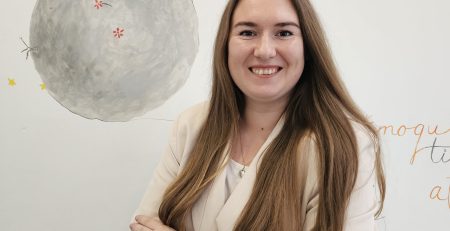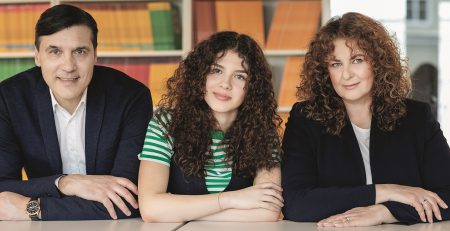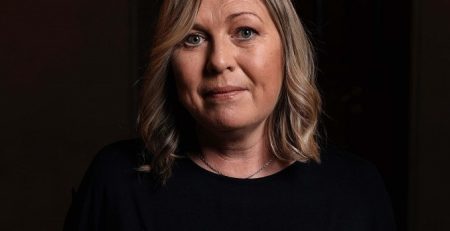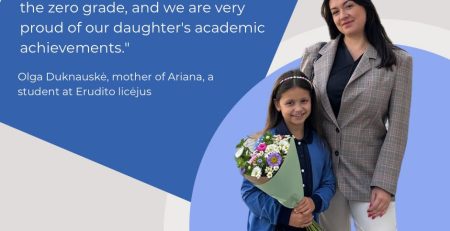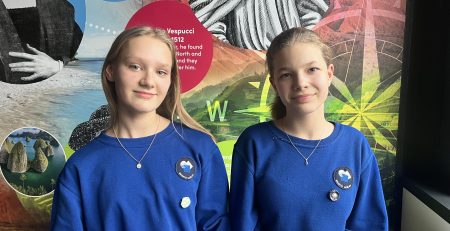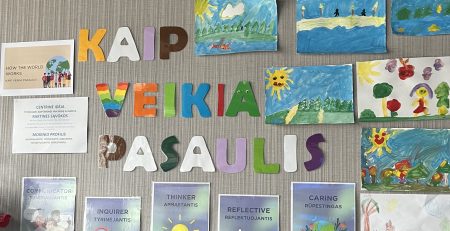Integrated International Baccalaureate History and English lesson
Almost a month before the submission of history subject’s internal assessment (IA) draft, Kaunas and Vilnius “Erudito licėjus” students gathered to participate in presentation of their research progress. This integrative task was organised as a part of the collaboration between the English teacher Greta Kaikarytė, History and Theory of Knowledge teacher dr. Donatas Šinkūnas and History teacher Gražvydas Kaškelis.
Students had to complete three tasks for which they were assessed. First, the students had to write abstracts for their research papers. This allowed them to look at their research areas from a different angle, evaluate the reliability of chosen primary and secondary sources, compare and contrast opposing interpretations, and reconsider the main aim of their research papers. The students also had to prepare a presentation following certain requirements of 3MT presentation format, and upload their speech scripts online. Those who do not have History as a subject, had to do a presentation on their Extended Essays (EE).
The preparation processes of presentations – research, in class discussions, and writing were done in English. In this way, the students did not only have the opportunity to share the topics with their peers, practice oral communication skills, reassess the scope of their research questions, but also receive constructive feedback on their linguistic skills and subject related knowledge.
“Often students are not capable of seeing that the research question they have chosen is too broad. For this reason, the final written work tends to lose its direction, lacks in consistency and clearly formulated main objective. It is of utmost significance to learn how to narrow down your topic, to understand where to stop and no longer continue with the research that does not serve the purpose of the paper. All students are different – some are great storytellers, others are able to provide excellent analysis of chosen critical sources; some are too curious and interested in everything their topic has to offer hence they might lose themselves in the wide scope of their research, others choose a thought-provoking topic but are unable to find the right sources, and so on. Therefore, these series of collaborative lessons were a great opportunity not only to get familiarised with the interests and topics of one’s peers, but also to identify each other’s strengths and weaknesses and learn from them. Personally, I am pleased with the progress of the students, both linguistically and subject-wise. They seem bolder, more confident in their historical and linguistic knowledge. After the presentations, the students received brief oral and detailed written feedback. The following day after the presentations, we focused on highlighting certain details that would improve the quality of their written work. In a sense, we, as teachers, also received feedback about our own work” – dr. Šinkūnas shares his thoughts.
“It is important to learn about certain linguistic formalities – such as correct referencing, presentation formatting, stylistic and rhetorical devices, and so on – that are intrinsic to academic writing and formal presentation techniques. The earlier we start implementing subject specific academic conventions into our work, the better. These collaborative lessons were a great way to reassess our own reading and writing practices, as well as refine public speaking skills. Even though a lot of time was spent working on individual research, the presentations and discussions we had ultimately led to collective reflections and feedback.” – comments English teacher Greta Kaikarytė.




